Airbnb in Maha Goa: 10 Waves of Change That Will Redefine Coastal Luxury & ROI by 2030

Airbnb in Maha Goa: 10 Waves of Change That Will Redefine Coastal Luxury & ROI by 2030
When your guest steps off the Mumbai ferry, breathes in the salty air, and walks into a villa designed with Roman arches and coastal serenity, they won’t ask “Why Maha Goa?” — they’ll ask, “Is this one of Nine Divine’s villas?”
Table of Contents
- Airbnb in Maha Goa: 10 Waves of Change That Will Redefine Coastal Luxury & ROI by 2030
- 1. The 2025 Boom: Why “Airbnb in Maha Goa” Is the Phrase Every Investor Should Learn
- 2. Why Maha Goa Is India’s Next Airbnb Magnet
- 1️⃣ Connectivity That Converts
- 2️⃣ Signature Experiences Drive Discovery
- 3️⃣ Institutional Confidence
- 4️⃣ Price Advantage vs Goa
- 5️⃣ Space, Silence & Soul
- 3. INS Guldar: The ₹46.9-Crore Underwater Legacy That Will Anchor Airbnb in Maha Goa
- 4. The Ro-Ro Ferry Revolution: 3 Hours That Change Everything
- 5. The Airbnb Data Dividend: Proof That Maha Goa’s Timing Is Perfect
- 6. The Golden Triangle: MOPA + INS Guldar + Ro-Ro = The Airbnb Engine
- 7. Nine Divine’s Vision for Airbnb-Ready Coastal Living
- 8. Design Intelligence: 5 Airbnb Secrets Every Maha Goa Host Should Use
- 9. 2025–2030 Projection: The Airbnb in Maha Goa Appreciation Curve
- 10. The Legacy Play: Why 2025–26 Is Your Moment
That moment of recognition defines the transformation. Airbnb in Maha Goa is no longer just a trend — it’s an identity. A movement. A legacy in the making.
This is the Nine Divine story of the ten powerful waves reshaping the coastline from Sindhudurg to Vengurla — where smart capital, sustainable design, and Airbnb-ready luxury converge to redefine coastal living by 2030.
But beneath the elegance lies something far more powerful — a quiet coastal revolution.
For decades, Goa held the monopoly on India’s west-coast luxury. Its beaches were the postcard, its villas the aspiration, its rentals the benchmark. But every legacy has a next chapter — and that chapter begins here, in Maha Goa.
Here, investment meets intention. Every road widening, every Ro-Ro ferry, every luxury homestay permit adds a new layer to the future map of India’s tourism economy. And leading this shift is a new generation of developers who understand that the next great destination isn’t copied — it’s crafted.
Nine Divine Developers is one such name.
Their philosophy is simple yet profound: “Build homes that host memories, not just people.” Each villa is an invitation to experience life at the intersection of art, architecture, and appreciation — a space where Roman arches meet Konkan courtyards, and where every design detail is future-proofed for the Airbnb economy.
In a world chasing fast flips and short-term gains, Nine Divine builds for legacy — for investors who think like creators, not speculators.
Welcome to Maha Goa, where your investment doesn’t just grow in numbers — it grows in stories.

1. The 2025 Boom: Why “Airbnb in Maha Goa” Is the Phrase Every Investor Should Learn
The boundaries of Goa are expanding — and with them, investor vision. Maha Goa now represents a seamless coastal continuum, extending from North Goa into Sindhudurg’s serene beaches and lush hinterlands.
Here’s why that shift matters for investors:
Identity Reimagined: “Maha Goa” combines Maharashtra’s untouched beauty with Goa’s luxury reputation.
First-Mover Power: SEO and brand dominance for “Airbnb in Maha Goa” will define digital discovery from 2025 onward.
Experience + Promise: “Stay where Goa ends — and the magic begins.”
Algorithm Advantage: Google’s post-2024 updates reward regional specificity — “Maha Goa” is your golden keyword.
Two forces anchor this evolution: the INS Guldar Underwater Museum and the Mumbai–Sindhudurg Ro-Ro Ferry — both redefining accessibility and storytelling.
2. Why Maha Goa Is India’s Next Airbnb Magnet
Before we dive deep into infrastructure, here’s what makes Maha Goa the new Airbnb frontier:
1️⃣ Connectivity That Converts
With the Mumbai–Sindhudurg Ro-Ro Ferry and upgraded NH-66/SH-180 corridors, the region is no longer remote — it’s reachable, rentable, and rewarding.
2️⃣ Signature Experiences Drive Discovery
The ₹46.9-crore Underwater Museum transforms Nivati Rocks into India’s first marine heritage dive destination — a story only Maha Goa can tell.
3️⃣ Institutional Confidence
Massive state-backed investments validate the market, de-risking private participation.
4️⃣ Price Advantage vs Goa
Lower entry costs + comparable infrastructure = higher yield multipliers.
5️⃣ Space, Silence & Soul
As Goa densifies, travellers crave tranquility. Airbnb in Maha Goa delivers that equilibrium between luxury and authenticity.
3. INS Guldar: The ₹46.9-Crore Underwater Legacy That Will Anchor Airbnb in Maha Goa
Imagine a decommissioned naval ship reborn beneath the sea — a living reef museum inviting divers, filmmakers, and storytellers. That’s INS Guldar, India’s first underwater museum, being developed off Nivati Rocks.
Budget: ₹46.91 crore
Purpose: Marine conservation + tourism magnet
Symbolism: A naval relic transformed into a cathedral of coral and color
For Airbnb investors, proximity to such an attraction means higher booking rates, content-rich storytelling, and long-term brand recall.
When guests search “Stay near the wreck”, your villa’s location becomes a narrative advantage.
4. The Ro-Ro Ferry Revolution: 3 Hours That Change Everything
Connectivity equals conversions.
The Mumbai–Sindhudurg Ro-Ro Ferry (operational 2025) now makes weekend coastal escapes logistically easy and emotionally aspirational.
Impact for Airbnb Hosts:
Guests arrive refreshed — not road-weary.
Vehicle-accessible villas with parking outperform others.
Shorter travel windows increase repeat bookings.
Weekend tourism surges create steady occupancy.
Maha Goa isn’t a detour anymore. It’s a direct line to profit.
5. The Airbnb Data Dividend: Proof That Maha Goa’s Timing Is Perfect
According to the Airbnb–Oxford Economics 2024 Report:
₹113 billion contribution to India’s GDP
91% domestic travellers — signalling strong local demand
3× rise in non-urban bookings since 2019
Add MOPA Airport’s 4.7 million passengers (2024) and 25% YoY growth, and you have a perfect storm of access + aspiration.
For Nine Divine investors, these are not abstract metrics — they are demand signals, validated by infrastructure and lifestyle data.
6. The Golden Triangle: MOPA + INS Guldar + Ro-Ro = The Airbnb Engine
Every enduring micro-market is powered by a trinity.
For Airbnb in Maha Goa, the triangle is clear:
MOPA Airport — Northern gateway expanding tourist inflows
INS Guldar Museum — Experience magnet anchoring long-stay tourism
Ro-Ro Ferry — Accessibility driver connecting Mumbai to Sindhudurg
Together, these define the growth corridor where Nine Divine is shaping its premium villa vision for the next decade.
7. Nine Divine’s Vision for Airbnb-Ready Coastal Living
Developer: Nine Divine Developers
Scale: 11 acres | 50 villa plots
Theme: Roman-inspired architecture meets Konkan coastal serenity
Location: Along SH-180, minutes from NH-66 and Sawantwadi station, ~40 mins from MOPA
Why It’s Airbnb-Optimized:
Luxury-grade materials + smart utilities
Concierge spine for guest management
Mixed-use retail & office spaces for ecosystem hosting
Coastal + Roman design coherence for visual storytelling
High privacy, low density — designed for premium guests
Cida De Luxora isn’t just a villa enclave — it’s a stay economy in motion. Every home doubles as a lifestyle asset and a digital hospitality brand.
8. Design Intelligence: 5 Airbnb Secrets Every Maha Goa Host Should Use
Secure Parking & Storage — To serve ferry travellers bringing gear.
Indoor-Outdoor Flow — Verandas, breezeways, outdoor showers.
Smart Guest Tech — Locks, chatbots, digital concierge.
Eco-Sensitive Design — Solar, native landscaping, rain harvesting.
Narrative Interiors — Coral, marine motifs, ambient lighting.
These micro-decisions make guests fall in love — and reviews drive ROI.
9. 2025–2030 Projection: The Airbnb in Maha Goa Appreciation Curve
Metric | 2025 (Launch) | 2027 (Growth) | 2030 (Mature) |
Occupancy | 35–45% | 55–65% | 70–80% |
ADR Growth | +6–8% YoY | +10% YoY | +12–15% YoY |
Annual Nights | 150 | 250 | 320 |
Capital Appreciation | 1× | 2× | 3×+ |
Yield (Net) | 6–7% | 9–10% | 11–12%+ |
Backed by infrastructure and brand narrative, this isn’t a fantasy curve — it’s a mirror of Alibaug, Havelock, and Maldives-style evolution.
10. The Legacy Play: Why 2025–26 Is Your Moment
Every coastal boom has its before and after. Maha Goa’s moment is now.
By 2030, Airbnb saturation will rise — but early investors will already be legacy hosts, with appreciation and reviews compounding in their favour.
2025–2026 is the entry window.
Nine Divine Developers invites you to explore premium villa plots in Maha Goa’s emerging coastal belt — limited inventory, enduring value, and infinite storytelling potential.
👉 Visit [Nine Divine Developers Official Website]
👉 Explore Maha Goa Investment Opportunities with Total Realty
Because you’re not just buying property.
You’re co-authoring the future of India’s coastal luxury.
Airbnb in Maha Goa — by Nine Divine. Where living becomes legend.
You Might Also Like

Nine Divine Group specializes in sustainable living, eco-friendly development, and heritage property restoration for modern lifestyles.
TOP NEWS
CONTACT INFO
Phone:
+91 72 9100 8100
Email :
info@ninedivinegroup.com
Address :
FF-12A, Sethi mart, near Mahagun Meadows,
Sector 150, Noida, Uttar Pradesh 201304
© 2025 Nine Divine Group. All Right Reserved.





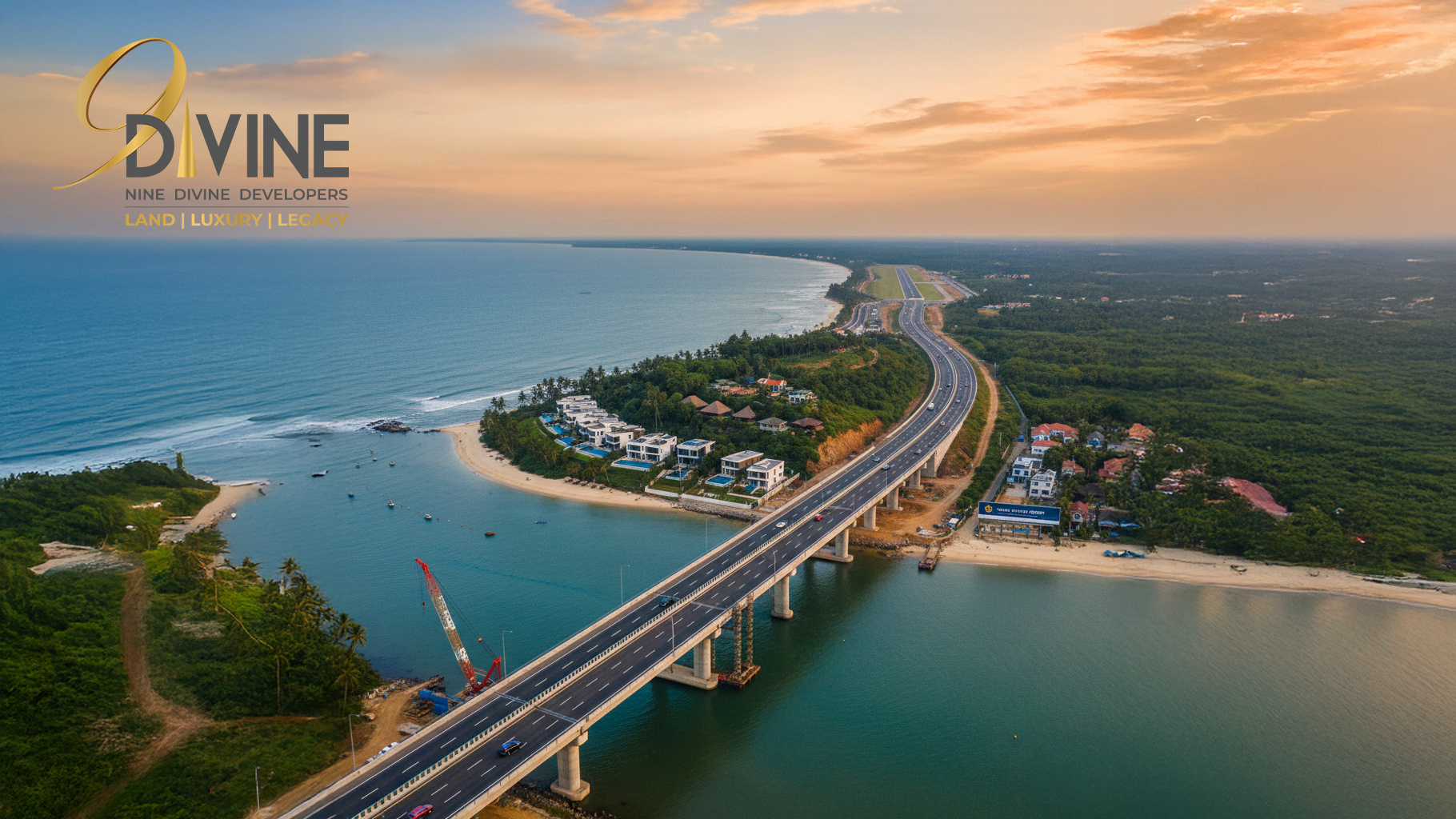
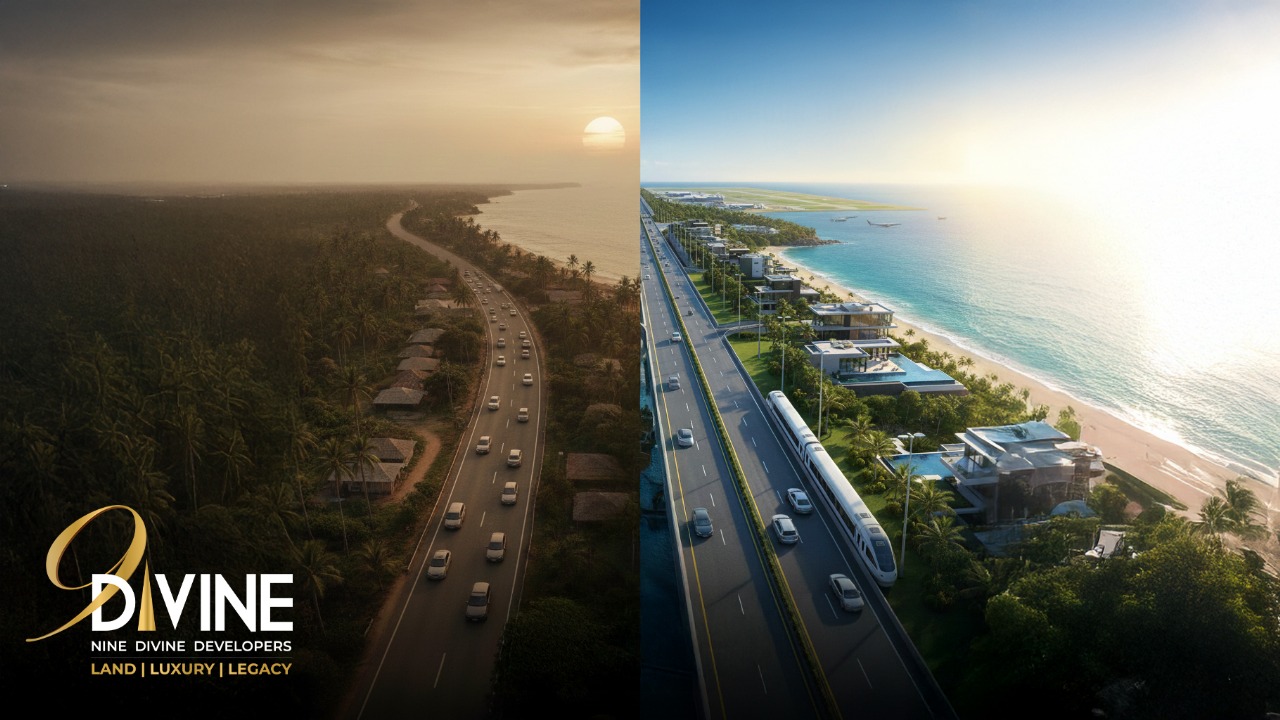
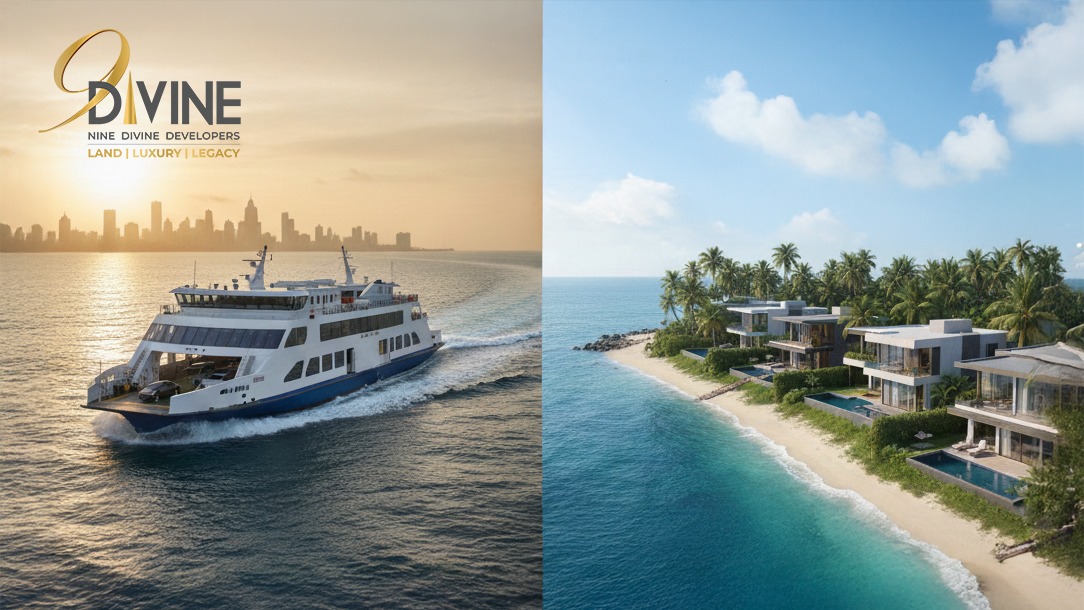
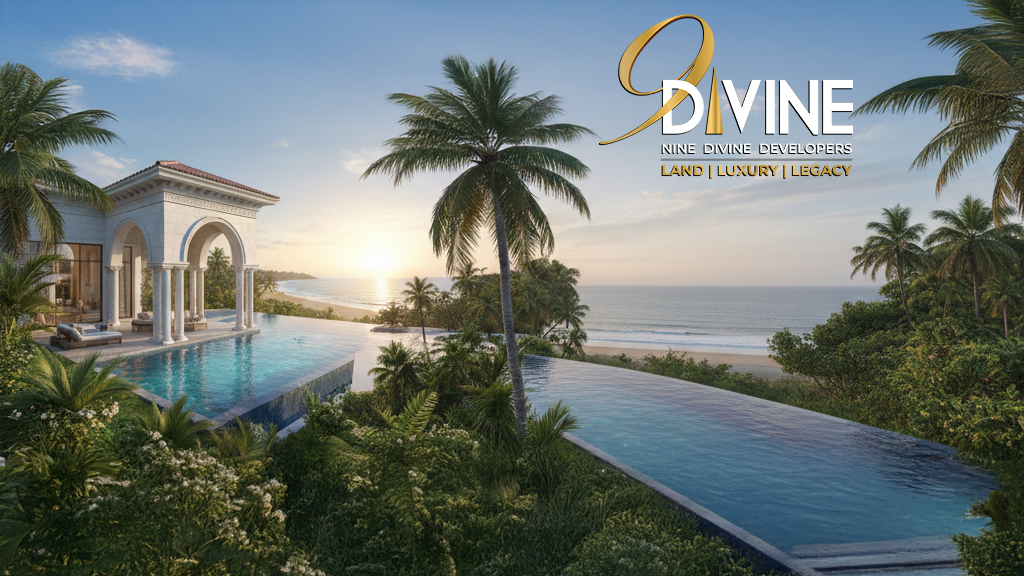
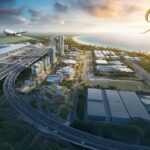

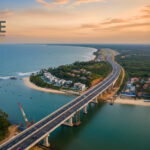
No Comments